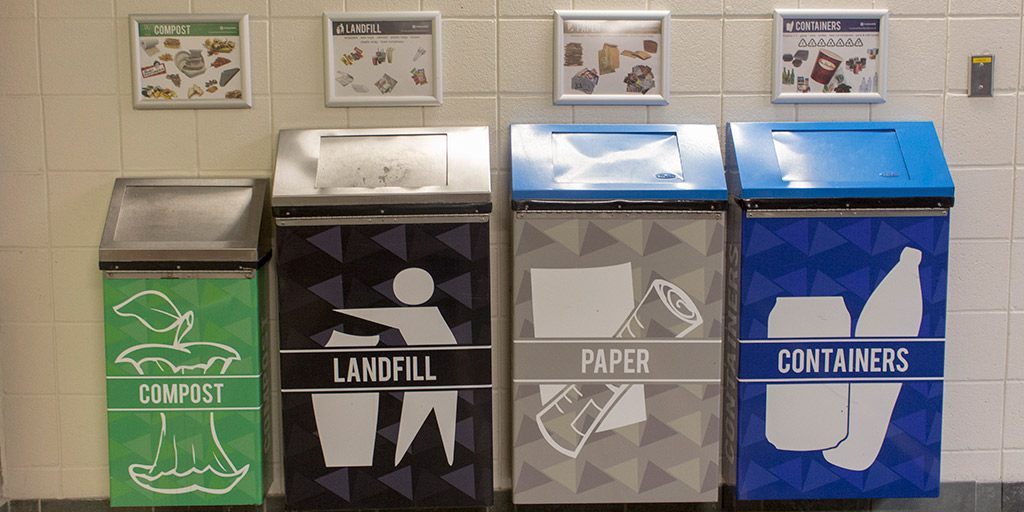Changes made to waste management at Fanshawe
 CREDIT: JEN DOEDE
CREDIT: JEN DOEDEFanshawe hires new waste hauler and transitions to a more sustainable disposal system.
Fanshawe's new waste disposal policy officially came into effect on April 1.
Although a number of changes to what can and cannot be recycled or composted have been made, receptacle stations across campus remain unaltered.
In line with the college's longterm commitment to sustainability, the shift will see more waste diverted from landfill to compost.
Much of the waste that avoids landfill or is not recycled will be converted into biogas at a local facility that generates clean, renewable energy.
“The environmental benefits are that methane will not be released into the atmosphere, and space in landfills will be saved. The college will also save on some hauling costs,” Fanshawe's sustainability co-ordinator, Amanda Whittingham, said. Waste items that were formerly thrown out or put into the paper or plastic recycling bins that can now be composted include: paper coffee cups, fountain drink cups, waxed paper, paper take-out bags and paper take-out containers.
The sorting technology used by Fanshawe's new hauler, however, is unable to accommodate some previously recyclable items, such as yogurt containers and plastic lids from coffee cups and fountain drinks.
“Machines sort the different types of plastic by laser, and these items are too small and can jam up the system. Though, this is a small price to pay for being able to compost so much more waste,” Whittingham said.
It is extremely important for students, faculty and staff members to try their best not to contaminate the different streams. For example, do not place food into a paper recycling bin. Paper, once soiled, cannot be recycled. Currently, almost all of Fanshawe's paper is being sent to landfill because it has been mixed with other waste items.
Straws, as another example, must be removed and thrown away prior to recycling any plastic cup or container. While, similarly, it is imperative that straws, lids and utensils make their way into the landfill bin before composting a paper cup or other organic materials.
If the streams continue to be contaminated by unsought items, the college's diversion rate will stagnate (or, worse, decline) and Fanshawe's ultimate goal of zero landfill waste by 2030 will be unreachable.
Every year, London's landfill inches ever-closer to capacity. If the city maintains its current rate of waste production, the landfill will be full in less than nine years. Without anywhere to deposit its trash, London will then be forced to buy up valuable farmland to convert into dumping grounds.
Ensuring that individual waste products are properly sorted between landfill, recycling and compost containers is a small everyday action that has a large impact. Choose to be environmentally responsible. Select the appropriate receptacle.














